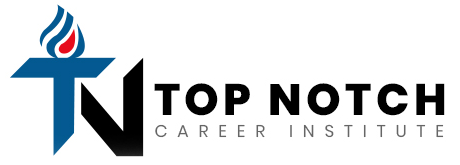Assessment
Assessment is a critical component in the selection of academic majors and professional careers. It requires a comprehensive approach that considers your interests, skills, abilities, values, and career goals. Our professional counselors will provide:
- Aptitude, Interests and Personality Assessments: We administer aptitude, interests and personality assessments to help students gain a deeper understanding of their natural abilities, preferences, and personal traits. These tests and assessments can provide valuable insights into potential career paths that suit students’ aptitudes and personalities. Examples of such tests include the Myers-Briggs Type Indicator (MBTI) and the Strong Interest Inventory.
- Self-Assessment: We encourage students to reflect on their strengths, interests, and values. We show students how to consider their academic subjects, extracurricular activities, and personal experiences that they enjoy and excel in. This self-reflection will help them identify potential areas of interest.
- Guidance Counseling: Counselors or career advisors provide one-on-one support to students. These professionals help students identify their strengths, explore potential career paths, and provide guidance on suitable college majors that align with their interests and goals.
- College Major Research: Once students have identified potential areas of interest, counselors will guide them to research college majors and programs that align with those interests. Help them understand the curriculum, course requirements, and career prospects associated with different majors.
- Skill Development: Identify and evaluate the skills students have acquired through their academic and extracurricular activities. Assess their strengths in areas such as communication, problem-solving, leadership, creativity, and technical skills. These skills can help guide them towards majors and careers that align with their abilities.
- Real-World Experiences: Encourage and connect students with internships, job-shadowing opportunities, or volunteer work related to their areas of interest. These experiences provide hands-on exposure to different careers, allowing students to assess their compatibility with specific fields.
- Mentorship and Networking: Connect students with professionals in fields they are considering. Mentors can provide insights into the day-to-day realities of different careers and offer guidance based on their own experiences.
- Ongoing Evaluation: Career development is an ongoing process. Students can revisit and reassess their goals and interests regularly. They can adjust their path if they discover new interests or insights along the way.
- We believe that every student is unique and consider their individual aspirations and strengths when assessing them for college majors and career development. We combine self-assessment, exploration, professional guidance, and practical experiences to help students and families make informed decisions about their future paths.

Academic Tutoring
Tutoring is provided as private academic support, usually through an expert teacher in the field or someone with deep knowledge and defined expertise in a particular subject or set of subjects. We can also connect the student with tutoring mentors and academic support.
Reading support
- Private tutors: Assess your current reading level, identify areas for improvement and create a personalized learning plan to improve reading skills.
- Interactive: Reading exercises, activities, games, and assessments to engage learners, track their progress and enhance the desire for reading.</ • Phonics Instruction: A method of teaching reading by associating sounds with letters or letter groups. Various phonics programs are available, both in-person and online, that focus on teaching letter sounds, blending, and decoding skills.
- Reading Intervention Programs: These programs are specifically designed to help struggling readers catch up to their peers. They typically include targeted instruction and support to address specific reading difficulties, such as decoding, fluency, comprehension, or vocabulary.
Writing
We provide personal or an online writing workshop aimed at assisting struggling writers and researchers with learning the art of academic and persuasive writing. Receive feedback on your writing and learn from expert writers and researchers how to improve your writing skills. Teaching writing skills requires a combination of strategies that address different aspects of the writing process. You will learn techniques to improve your writing skills:- We demonstrate the writing process by modeling the steps involved in constructing a written piece. This can include brainstorming, outlining, drafting, revising, and editing.
- We will provide guided writing activities where students work alongside you or with peers to practice the writing process with your support and guidance.
- Professional writers break down the process into manageable steps, providing clear examples and explanations at each stage.
- Receive frequent writing practice to build fluency and confidence. You will be assigned a variety of writing tasks such as essays, journal entries, creative writing, opinion pieces, and research papers.
- Learn how to write more persuasively using less words.
- Learn strategies for revising and editing, including checking for clarity, coherence, grammar, punctuation, and spelling.
- Reflect on the feedback received and actively engage in the revision process based on the feedback provided.
Public Speaking:
Teaching public speaking involves a combination of theoretical knowledge, practical exercises, and supportive feedback. Professional speakers will demonstrate how to effectively speak in public.- Experience a supportive atmosphere where learners feel comfortable expressing themselves and learn to communicate, while interacting with diverse populations.
- Understand the basic concepts of public speaking, including the purpose, audience analysis, speech structure, and delivery techniques.
- Learn effective body language, vocal projection, eye contact, and gestures.
- Analyze great speeches and see examples of influential speeches from renowned speakers and discuss their strengths.
- Students are guided through the process of speech preparation, including topic selection, research, and organization of ideas.
- Practice speech delivery and conduct practice sessions with students who will deliver speeches in a supportive environment.
- Learn different speaking techniques such as storytelling, using visual aids, incorporating humor, and persuasive speaking.
- Become more motivated to speak and foster a growth mindset emphasizing public speaking skills developed through practice and effort.
